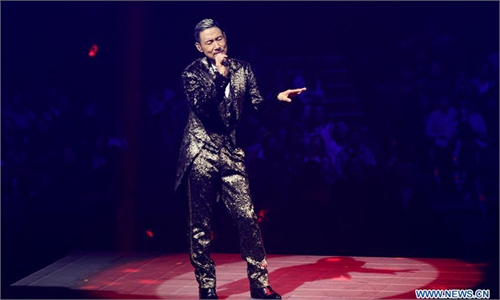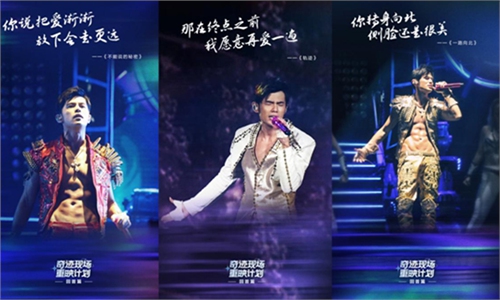ARTS / CULTURE & LEISURE
Managing the irregularities amid enjoyable ‘concert fever’

Illustration: Liu Xiangya/Global Times
They have set alarms, filled the personal information and mobilized their families and friends to get ready for the moment to come. This summer, "concert fever" has been hotter than any high temperatures.
Four concerts by Jay Chou, the renowned Chinese singer and songwriter, recently concluded in North China's Tianjin with resounding success. The concerts from September 7 to 10 drew 185,000 local and out-of-town attendees, generating a staggering 3 billion yuan ($411 million) in consumption revenue. Tourism income saw a 77.4 percent surge compared to 2019, illustrating the power of concerts in boosting tourism.
Yet snatching concert tickets has been ordeal for many. When tickets went on sale in July, nearly 130,000 tickets were snapped up within 30 seconds on Damai, China's leading online ticketing platform for live events. Ticket scalpers were soon selling two adjacent seats for 150,000 yuan on an online flea market platform.
In addition to scalpers, there were also scammers. Many fans have shared their unfortunate experiences of being swindled when they tried to buy tickets from fake scalpers on social media. According to domestic media reports, one netizen paid 76,000 yuan to a scalper for a concert ticket which never arrived.
To combat scalpers and remedy the situation, China's Ministry of Culture and Tourism and the Ministry of Public Security on Wednesday jointly released a notice concerning the strengthening of the standardized management of large-scale commercial performance events with an audience of more than 5,000 people. According to the notice, a real-name ticket purchase and entry system will be required for these events.
According to the notice, a single identification number can only purchase one ticket for an event, and the identity information of the ticket purchaser has to match that of the person who enters the venue. Also, the number of tickets sold to the public should not be less than 85 percent of audience capacity.
For the remaining 15 percent of the tickets, personal information needs to be bound with the tickets within 24 hours before the performance, as a way to ensure "real-name entry." The organizers of the performance event and the ticket sales platform should strengthen consumers' privacy protection to prevent unauthorized access, said the notice.
While the public in China applauded the notice, it should hold global significance as well, considering the challenges posed by large-scale events are universal.
In this post-pandemic era, concert-goers across the globe are eager to immerse themselves in live music performances and socialize with like-minded fans. Analysts estimate that the ongoing international Eras Tour by US singer Taylor Swift will likely surpass the $1 billion mark by March 2024, and the money goes far deeper than just net profit. The Eras Tour is projected to generate close to $5 billion in consumer spending in the US alone, reported US-based Time Magazine.
Yet large-scale commercial performance events outside China also grapple with challenges of scalping, security, and crowd management. For big events of this kind, many of the tickets will end up going to bots on sites that buy tickets in large quantities and resell for skyrocketing prices.
Even though online ticketing platforms such as Ticketmaster launched a "Verified Fan" program to combat this issue, many fans are not able to get verified. Hopefully, the newly announced regulations by the Ministry of Culture and Tourism and the Ministry of Public Security may provide a reference.
As the concert market continues to heat up, relevant government agencies should keep multi-party cooperation in mind to provide good experiences for the public and implement multiple measures to resolve hidden worries in the long-term development of the performance market.
A temporary boom does not guarantee enduring prosperity. To continuously stimulate cultural consumption, institutions should actively seek to organize diverse and high-quality performances to meet public demand. Government guidance at the policy level is obviously crucial.
The new notice is a case in point. It shows China's robust management system for large-scale commercial performance events, while offering a glimpse into the government's efforts to strike a balance between promoting cultural events to boost the economy and tourism and maintaining control in order to promote the sound development of the performance market.
The author is a reporter with the Global Times. life@globaltimes.com.cn


